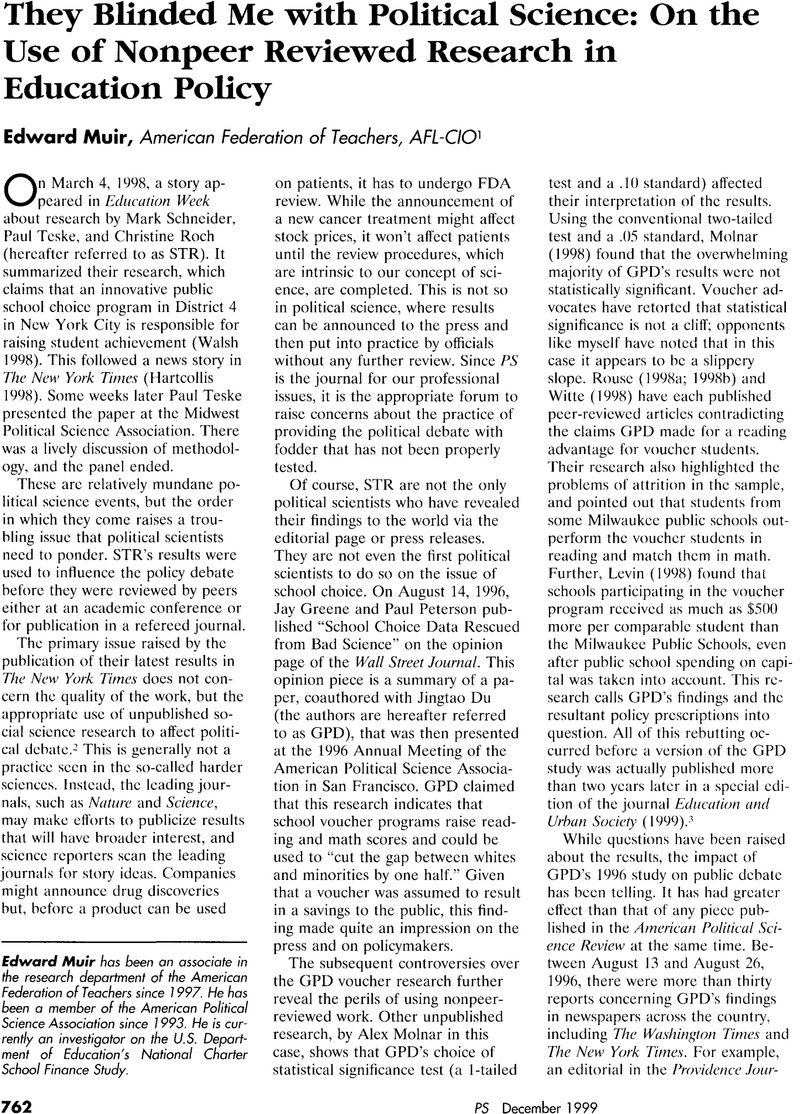Crossref Citations
This article has been cited by the following publications. This list is generated based on data provided by Crossref.
Greene, Jay P.
and
Peterson, Paul E.
2000.
Should Public Discussion of Political Science Research Be Controlled? Why Interest Group Recommendations on the Proper Procedures for Reporting Research Should Be Treated with Skepticism.
PS: Political Science & Politics,
Vol. 33,
Issue. 2,
p.
221.
Muir, Edward
2000.
Social Science Should Be a Process, Not a Bloody Shirt.
PS: Political Science & Politics,
Vol. 33,
Issue. 2,
p.
225.
Buckley, Jack
and
Schneider, Mark
2003.
Shopping for Schools: How Do Marginal Consumers Gather Information About Schools?.
Policy Studies Journal,
Vol. 31,
Issue. 2,
p.
121.
Schwartz, Robert
and
Mayne, John
2005.
Assuring the quality of evaluative information: theory and practice.
Evaluation and Program Planning,
Vol. 28,
Issue. 1,
p.
1.



